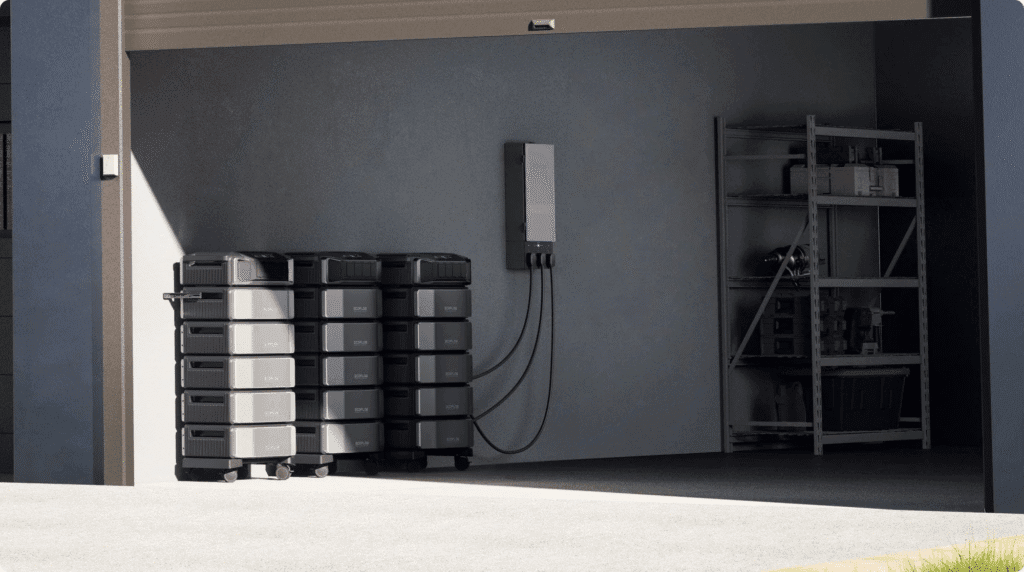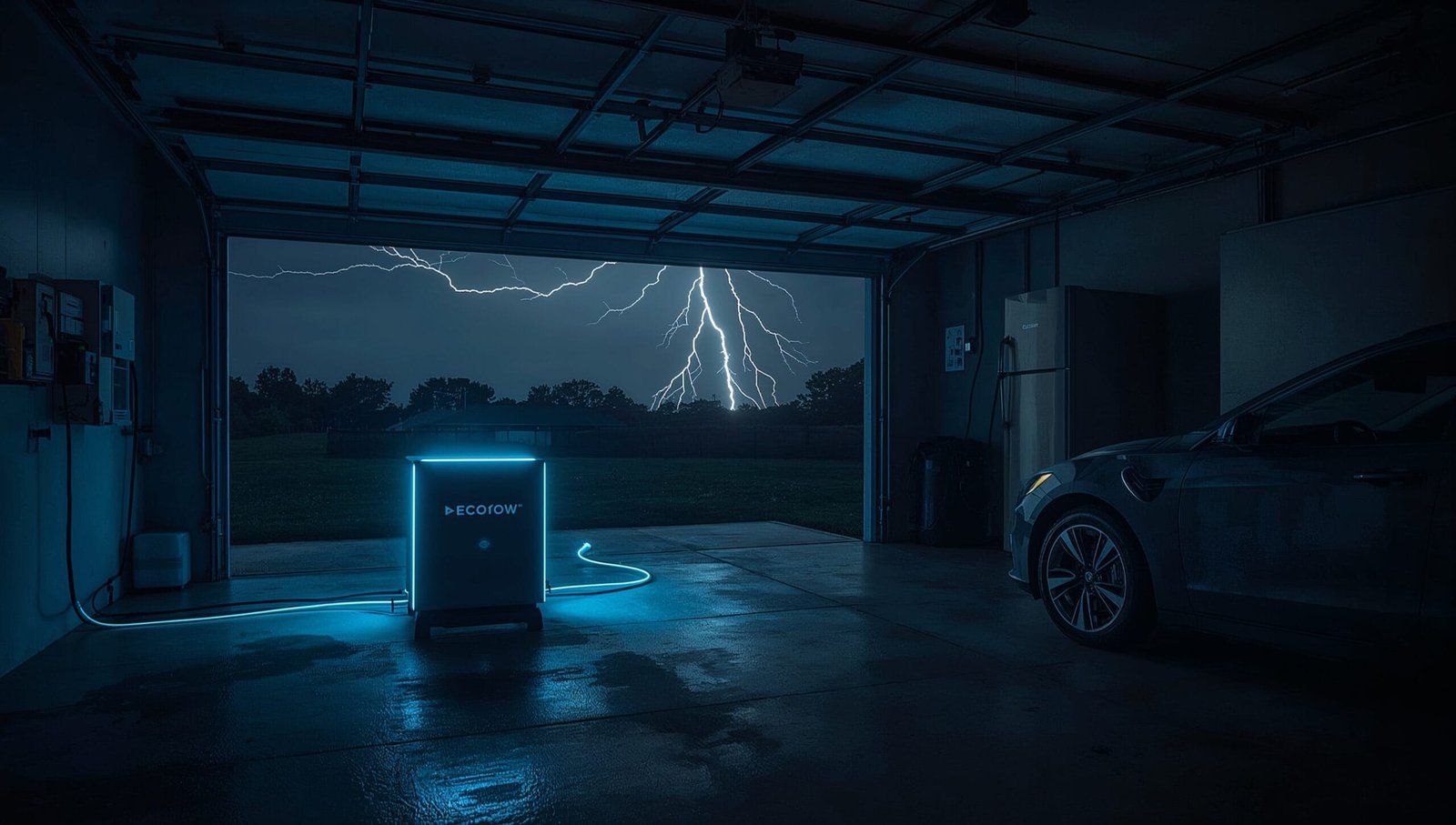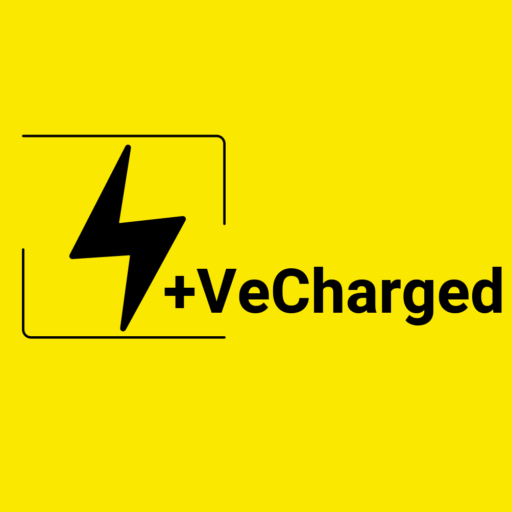The Bottom Line: The EcoFlow Delta Pro Ultra is a modular, high-output power station that directly challenges traditional home backup systems. With a massive 7.2kW continuous output and stackable 6kWh batteries, it’s a powerful solution for tech-savvy homeowners who need immense, portable power and want to avoid the complexity of a permanent installation. However, its premium price demands a careful, data-driven assessment of your specific energy needs before you invest.
Why You Should Care Now
Following features on major channels like JerryRigEverything, the Delta Pro Ultra has sparked a critical debate: is this the future of home and portable power, or a brilliantly marketed but niche product? This review moves beyond the initial hype. We will provide the data, real-world scenarios, and interactive tools you need to determine if the Delta Pro Ultra is the right strategic asset for your home, workshop, or off-grid setup.

The Data Core: DPU vs. The Competition
An investment of this size demands a clear-eyed comparison. We’ve broken down the key specifications against its main competitors: the industry benchmark (Tesla Powerwall+), a comparable rival (Bluetti EP900), and the traditional alternative (a gas generator).
Key Spec Showdown
| Feature | EcoFlow Delta Pro Ultra | Tesla Powerwall+ | Bluetti EP900 | 10kW Gas Generator |
| Continuous Output | 7.2kW (14.4kW w/ 2 units) | 5.8kW (7.6kW peak) | 9kW | ~8-10kW |
| Voltage | 120V / 240V Split-Phase | 120V / 240V Split-Phase | 120V / 240V Split-Phase | 120V / 240V Split-Phase |
| Base Capacity | 6 kWh | 13.5 kWh | 9.9 kWh | N/A (Fuel) |
| Max Capacity | 90 kWh (15 batteries) | 54 kWh (4 units) | 39.6 kWh (4 units) | Unlimited (w/ fuel) |
| Battery Chemistry | LFP (LiFePO4) | NMC | LFP (LiFePO4) | N/A |
| UPS Switchover | <20ms (Online) | <100ms | <10ms | Manual / ~10-30 sec |
| Max Solar Input | 5.6kW (16.8kW w/ 3 units) | 7.6kW+ (Inverter) | 9kW | N/A |
| Portability | Yes (Wheeled batteries) | No (Wall-mounted) | No (Stationary) | Yes (Wheeled) |
| Est. Base Cost | ~$7,200 (6kWh) | ~$11,500 (13.5kWh) | ~$7,000 (9.9kWh) | ~$1,500 |
| Cost per kWh | ~$1,200/kWh | ~$850/kWh | ~$707/kWh | N/A |
Analysis: The Delta Pro Ultra’s key advantages are its massive output from a single unit and its unrivaled modularity. However, on a pure cost-per-kWh basis for storage, competitors like Bluetti and Tesla offer more value in their base configurations.

Real-World Scenarios: “Will It Run?”
Specifications are abstract. Here’s what the DPU’s 7.2kW of continuous power actually means for the high-draw appliances you care about.
| Appliance / Load | Can a Single DPU Run It? | Estimated Runtime (6kWh Battery) |
| Large Central A/C (4-ton) | ✅ Yes | 1 – 1.5 hours |
| Tesla Model Y (Level 2 Charging) | ✅ Yes | Adds ~20-25 miles of range |
| 240V Welder (e.g., Lincoln 210 MP) | ✅ Yes | ~45-60 minutes of arc time |
| Full-Size Refrigerator | ✅ Yes | 30 – 40 hours |
| Sump Pump (1/2 HP) | ✅ Yes | 15 – 20 hours (cycling) |
| Entire Home (Typical Outage) | ⚡️ Partial (Key circuits) | 4 – 8 hours |
| Entire Home (w/ Smart Panel 2) | ✅ Yes (Manages loads) | 3 – 6 hours |
Interactive Tool: Right-Size Your System
Don’t guess how much capacity you need. Use this calculator to get a data-driven recommendation for your specific backup scenario.
Right-Size Your System
Select the critical items you need to run during an outage to find your ideal setup.
1. Choose Your Appliances:
2. Days of Backup: 1
Your Recommendation
Estimated Capacity Needed:
0 kWh
Recommended DPU Batteries:
0
The Investment: Payback vs. a Gas Generator
For many, the alternative to a DPU is a traditional gas generator. While cheaper upfront, a generator has ongoing fuel and maintenance costs. This tool helps you calculate the long-term total cost of ownership.
Payback vs. Gas Generator
Calculate the 5-year total cost of ownership and find your breakeven point.
5-Year Cost Comparison
Gas Generator
$0
Delta Pro Ultra
$0
Calculating…
Strategic Verdict: Who is the Delta Pro Ultra Really For?
After extensive analysis, the Delta Pro Ultra is not a direct "Powerwall killer" for everyone. It is a specialized, high-performance tool for a specific type of user.

You SHOULD Invest in the Delta Pro Ultra If:
- You Need Power in Multiple Locations: You have a home, an RV, and a workshop. The DPU's portability is its killer feature, allowing one investment to serve multiple needs.
- You Have Extreme Power Demands: You're a creator, contractor, or homesteader running 240V equipment (welders, pumps, large saws) where grid power is unavailable or unreliable.
- You Are a Renter or Plan to Move: You want a whole-home backup solution without the permanence and complexity of a traditional, wall-mounted system.
You Should Consider Alternatives If:
- Your Primary Goal is Maximum kWh per Dollar: For a permanent, set-and-forget home installation, systems from Tesla or Bluetti currently offer a better return on storage capacity.
- You Only Need Basic Backup: If your goal is simply to keep the refrigerator and lights on, the DPU is likely overkill. A smaller, less expensive power station or generator would be more cost-effective.
The EcoFlow Delta Pro Ultra is a remarkable piece of engineering. It offers a level of power and flexibility that was previously unimaginable in a portable form factor. For the right user, it's a game-changing investment. For others, it's a premium-priced solution to a problem that a simpler system could solve. Use the data and tools in this analysis to decide which category you fall into.

Suhas Shrikant is the founder of Vecharged and an engineering enthusiast specializing in high-power off-grid solar systems. He has designed and built over a dozen custom systems and uses his hands-on, field-tested experience to create Vecharged’s expert guides and reviews.














